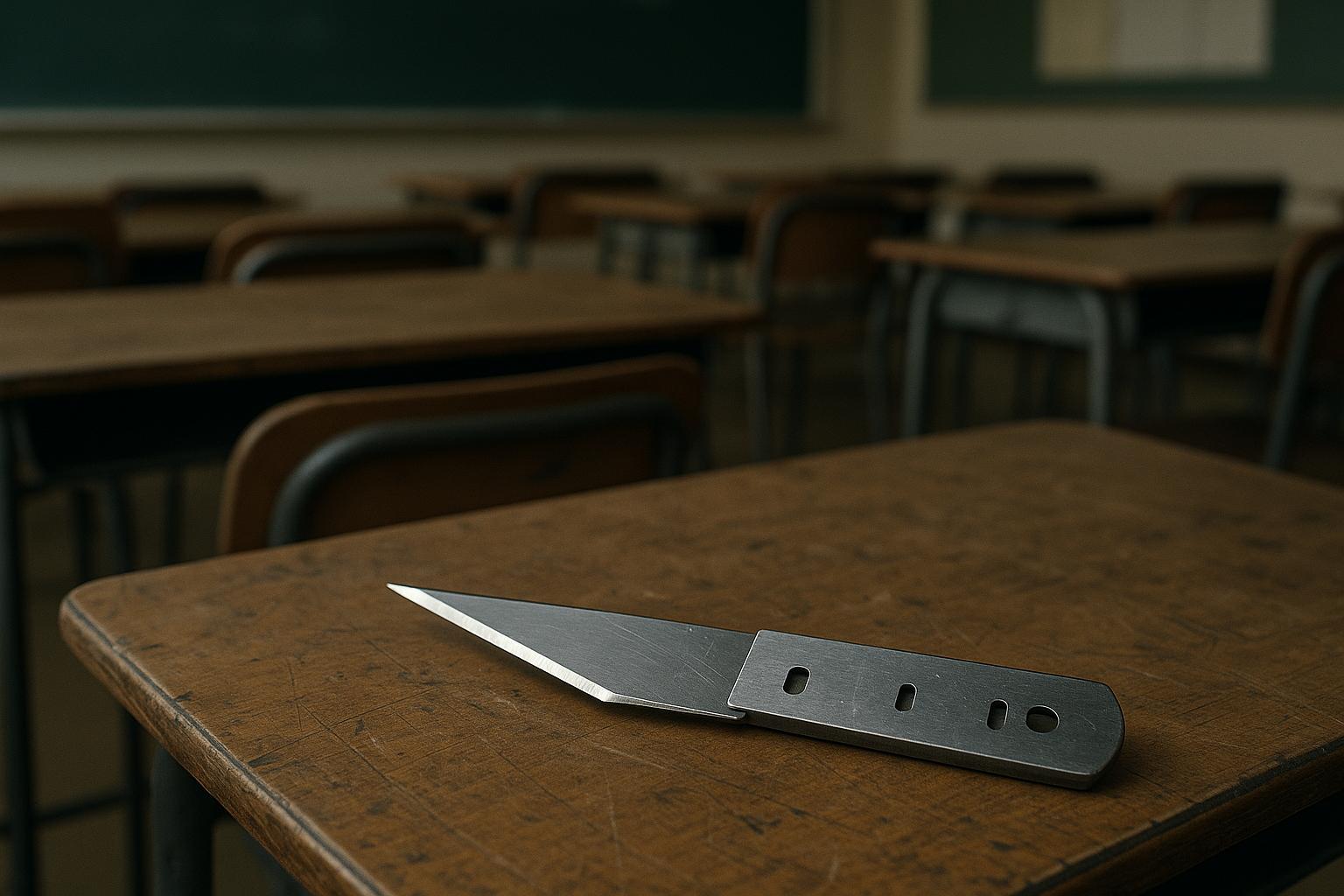The Conservative Party has announced a firm stance on knife crime in schools, pledging a ‘one strike and you’re out’ policy for pupils caught carrying knives. Shadow education secretary Laura Trott, delivering a speech at the Conservative Party conference, emphasised a zero-tolerance approach designed to safeguard other students and improve school safety. According to her, any child found with a knife in school will be expelled from mainstream education and transferred to alternative provision schools, which the party promises to enhance significantly to offer better support.
Trott criticised policies in places like London, where exclusion for knife-carrying pupils has been discouraged under initiatives such as Mayor Sadiq Khan’s ‘inclusion charter’. She argued that while Khan views efforts to keep children with knives in school as compassionate, headteachers warn that allowing one knife leads to many more the following day. Trott framed strict boundaries as a form of compassion, necessary to break the troubling cycle of knife carrying she witnessed firsthand from children mentored away from violence. She also highlighted the impact on teacher retention, noting a survey from a teaching union revealing that two in five teachers had suffered physical assault, some involving weapons, in the past year.
The proposal includes a presumption against readmitting pupils who carry knives, assault teachers, or sexually abuse others, positioning discipline as key to creating safe learning environments. Trott further condemned the role of social media and smartphones in normalising knife carrying and violence among youth, calling for tighter controls and a precautionary approach—something she says has been neglected despite the clear risks to young people.
While underscoring the necessity of exclusion for the safety of others, Trott acknowledged the importance of providing high-quality alternative education, akin to ‘intensive care’, to support excluded pupils effectively. She also mentioned plans to expand community partnerships like those involving Manchester United mentoring schemes to assist vulnerable children nationwide.
However, experts caution against transforming schools into heavily policed institutions. Baroness Anne Longfield, former children’s commissioner for England, warned that measures such as teachers wearing stab vests or metal detectors risk creating environments perceived as fortresses, which could heighten fear rather than alleviate it. She stressed that a comprehensive, national response is needed to tackle knife crime among teenagers, rather than punitive measures alone.
Looking beyond England, initiatives to address knife crime in schools reflect a growing awareness of the issue. In Jersey, for example, a proposed amendment to the Public Order Law seeks to criminalise carrying knives in schools to align with updated UK legislation, responding to over a thousand knife-related crimes reported in recent years, including incidents on school premises.
Meanwhile, education authorities and charities emphasise that tackling knife crime extends beyond exclusions and discipline within schools. Ofsted chief Amanda Spielman has argued that knife crime’s roots lie in complex societal problems, with excluded children often facing difficult circumstances long before being removed from school. She pointed out the necessity for adequately funded local services to support these children. Similarly, a charity in Milton Keynes advocates for mandatory knife crime education in primary schools, promoting early intervention as a key way to equip children with the knowledge to avoid violence.
In Wales, there are moves to require schools to report exclusions related to weapon possession to local authorities, ensuring better monitoring and support following incidents. This reflects widespread concern over the rise in violence and teacher abuse in schools and the need for coordinated responses.
The Conservatives plan to formalise their zero-tolerance approach through amendments to the forthcoming Schools Bill, aiming to prevent pupils who have been expelled twice from returning to mainstream education. Trott’s proposals highlight a tough stance on knife crime in schools, but the debate continues over the best balance between discipline, support, and creating safe yet welcoming educational environments.
📌 Reference Map:
- Paragraph 1 – [1]
- Paragraph 2 – [1], [4]
- Paragraph 3 – [1]
- Paragraph 4 – [2]
- Paragraph 5 – [3]
- Paragraph 6 – [5], [6]
- Paragraph 7 – [7], [1]
Source: Noah Wire Services
